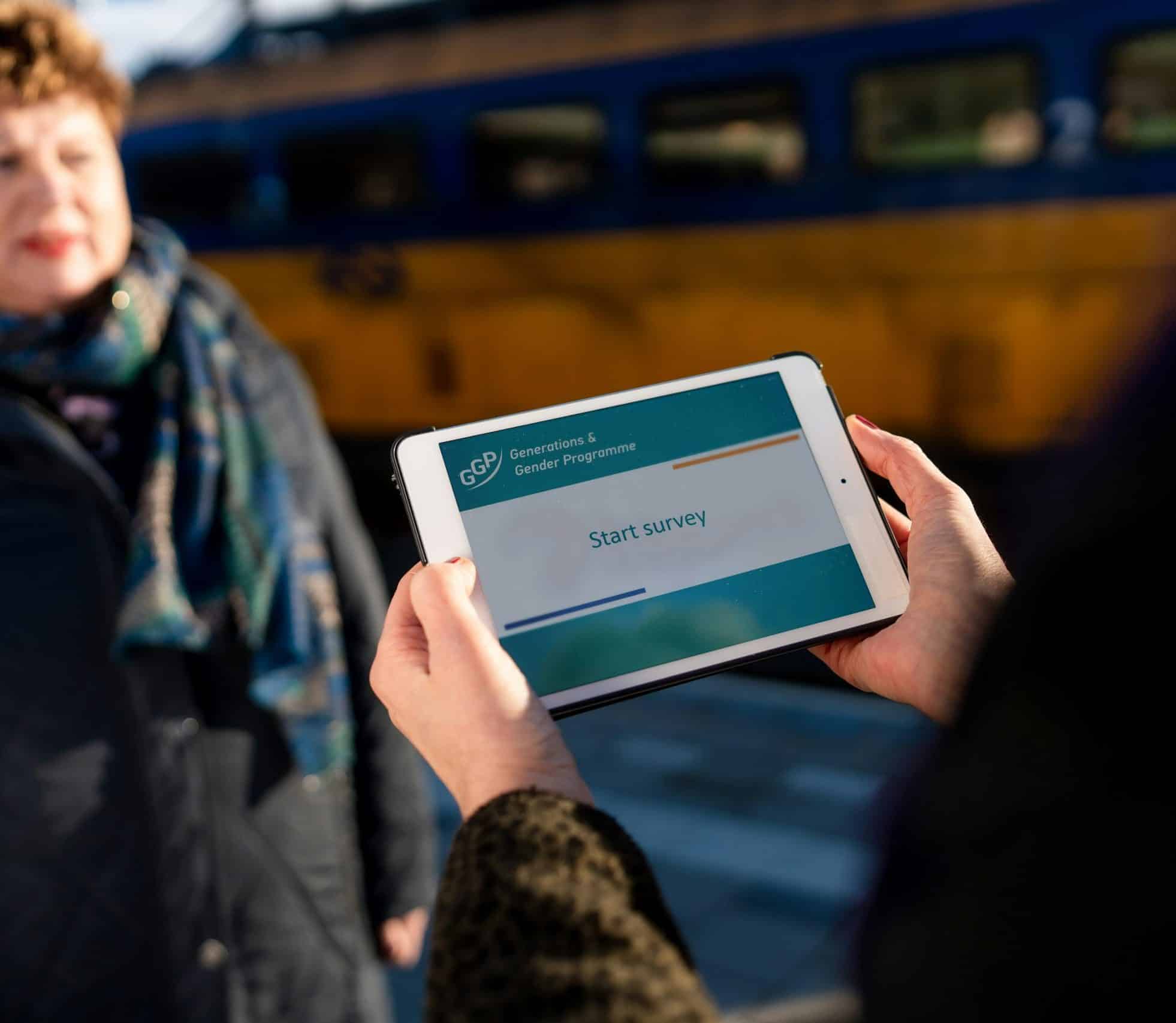The following surveys and panels are currently financed by ODISSEI in the Netherlands:
European Social Survey (ESS)
The European Social Survey (ESS) is an academically driven cross-national survey that has been conducted across Europe since its establishment in 2001. Every two years, face-to-face interviews are conducted with newly selected, cross-sectional samples. The survey measures the attitudes, beliefs and behaviour patterns of diverse populations in more than thirty nations.
European Values Study (EVS)
The European Values Study is a large-scale, cross-national, and longitudinal survey research program on basic human values. It provides insights into the ideas, beliefs, preferences, attitudes, values and opinions of citizens all over Europe. It is a unique research project on how Europeans think about life, family, work, religion, politics and society.
Generations & Gender Programme (GGP)
The GGP is a cross-national longitudinal survey of 18-79 year olds in 19 European and 4 non-European countries that aims to improve our understanding of the various factors – including public policy and programme interventions – which affect the relationships between parents and children (generations) and between partners (gender).
International Social Survey Programme (ISSP)
The ISSP is a cross-national collaboration programme conducting annual surveys on diverse topics relevant to social sciences. Established in 1984 by its founding members Australia, Germany, Great Britain and the US, the ISSP has since included members covering various cultures around the globe.
Survey of Health, Ageing and Retirement in Europe (SHARE)
The Survey of Health, Ageing and Retirement in Europe (SHARE) is a multidisciplinary and cross-national panel database of microdata on health, socio-economic status and social and family networks of more than 120,000 individuals aged 50 or older (more than 297,000 interviews). SHARE covers 27 European countries and Israel.
Dutch Parliamentary Election Studies (DPES)
The Dutch Parliamentary Election Studies was founded in 1971 as a joint project of all chairholders in the field of Politicology in the Netherlands. The core of the Studies consists of a survey of the elections for the Lower House among a representative sample of the electorate of the Netherlands.
Netherlands’ Life Course Survey
NELLS is a panel survey for the sociological research community. It focuses on social cohesion, norms and values, and inequality.
The Luxembourg Income Study
LIS acquires datasets with income, wealth, employment, and demographic data from many high- and middle-income countries, harmonises them to enable cross-national comparisons, and makes them publicly available in two databases, the Luxembourg Income Study Database (LIS) and the Luxembourg Wealth Study Database (LWS).
Photo by ODISSEI on Unsplash
